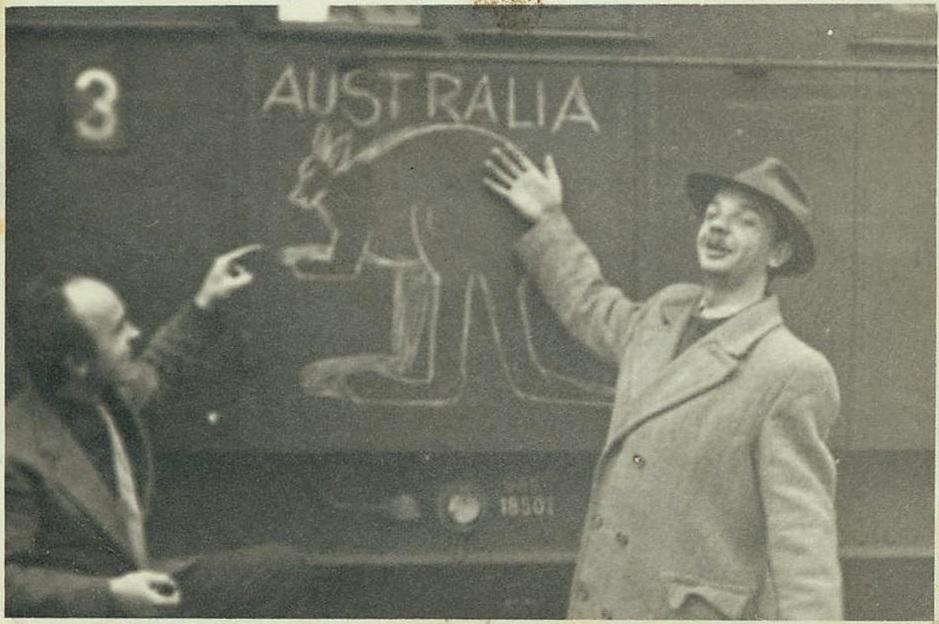Oz academics confront Oz foreign policy
Posted By Graeme Dobell on March 18, 2019 @ 06:00
‘You may not be interested in war, but war is interested in you.’ — Leon Trotsky
To shift Trotsky’s line a few degrees, Australians may not be interested in foreign affairs, but foreign affairs is interested in Australia.
The Russian revolutionary puts a lot of political weight into the truth that in this life you don’t always get what you want. And what you do get can be a nasty surprise.
As originally uttered, Trotsky probably said ‘dialectic’ rather than ‘war’, yet it’s still an elegant thought.
I thought of the Trotsky truth during a day at the Australian National University devoted to discussion of the teaching of Oz foreign policy in our universities.
The forum explored connections between academics and the broader Australian foreign policy community and what’s needed to ‘reinvigorate Australian foreign policy studies’.
The troubles of Oz foreign policy find a particular expression in the universities. In you-may-not-be-interested mode, most unis don’t contemplate our foreign policy. Only 12 of our 39 universities teach an Australian foreign policy course at any level of study. At many institutions, Oz foreign policy is one of the courses that’s ‘resting’; it’s not offered because there aren’t staff to teach it or because it’s not in high demand from students.
As the ANU’s Benjamin Day [1] commented, Oz foreign policy can be both ‘provincial and pragmatic’. And much like the continent, the subject can be ‘arid and isolated’. This is one of the many differences between the views of the subject in the US and Australia. ‘US foreign policy is like God—it’s everywhere’, James Cotton [2] observed.
For those building a teaching and research career, Oz foreign policy is too niche and too close to the world of think tanks for academic respectability. As another leading academic lamented, ‘No one wants to own it as a specialisation and few want to teach it.’
Plenty of academics research and write on Oz foreign policy, but it’s a dangerous career move to specialise only in Australian foreign relations.
As an area of secondary research, much is happening. In the last 50 issues of the Australian Journal of International Affairs, only four editions failed to have an article with an Oz dimension.
When discussion turns to how academics should influence politicians and policy, the cross-currents turn strong and murky.
One current is the need for academic independence and caution about ‘capture’ by government processes. For the ANU, this worry can be expressed in its campus geography: stroll to the lake and peer across at the parliamentary triangle.
The opposing current is the wish to shape policy, to get closer to the parliamentary triangle to influence what Canberra does.
The two currents are about freedom and function. The need is to think freely about policy. Yet to be a policy force, you’ve got to get close to the machinery and serve its functions.
Not much has changed in the clash of these two currents in the more than six years since Lee Morgenbesser wrote a journal article [3] on a survey revealing the state of mind of Oz international relations academics.
The most ‘significant and alarming finding’, he judged, was how university demands are ‘undermining scholars’ attempt to forge closer, more influential ties with policy makers in Canberra. In fact, it is clear from the results that what academics research and how they go about it is actually counterintuitive to this goal.’
The great divide between policymakers and academics was starkly stated at the ANU forum by Allan Behm, a long-time Canberra wise owl. Behm has been serving as chief of staff to the shadow foreign minister, Penny Wong, and a range of his excellent previous meditations on Oz policy can be found here [4] on The Strategist.
Behm reckons that what universities want from academics are perverse incentives when it comes to having any influence in Canberra.
‘Your incentives make you irrelevant in public policy’, Behm said. ‘You don’t appear in the places where we look for you. You are very hard to find in the opinion pages of the Australian media.’
Academic invisibility is bad for the unis but equally bad for Australia, he said, because levels of knowledge and education within a society ‘play into critical aspects of national power’.
From the Canberra side, add in the risk-aversion of the bureaucracy and the headache of getting security clearances for academics.
While the obstacles stack up, tough times are confronting many with the Trotsky truth, and the need to think new thoughts about foreign policy.
The forum was driven by the optimism of a Canberra outsider, the US scholar Professor Valerie M. Hudson, who is the inaugural vice-chancellor’s ‘Australia in the world’ visiting fellow at ANU. She launched the day by getting a roomful of Oz academics to commit to a loud Texas greeting: ‘Howdy!’
Hudson’s positive message was not to agonise, but organise. She called for the creation of an Australian foreign policy association, not least to share syllabuses, readings and tips across universities (I was surprised this doesn’t already happen).
The professor said Australia needs the insight and analysis of its academics, and she concluded with a sharp jest: ‘There’s already a robust foreign policy school looking at Australian foreign policy. It’s in the Chinese intelligence system. If they can do it, you can too.’
Article printed from The Strategist: https://aspistrategist.ru
URL to article: /oz-academics-confront-oz-foreign-policy/
URLs in this post:
[1] Benjamin Day: http://ir.bellschool.anu.edu.au/experts-publications/experts/benjamin-day
[2] James Cotton: https://www.unsw.adfa.edu.au/our-people/emeritus-professor-james-cotton
[3] journal article: https://www.tandfonline.com/doi/abs/10.1080/10357718.2012.750643
[4] here: /author/allan-behm/
Click here to print.
